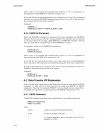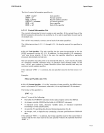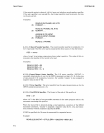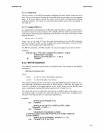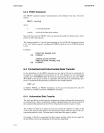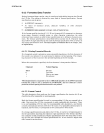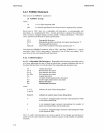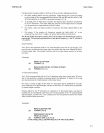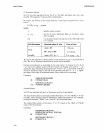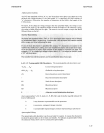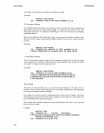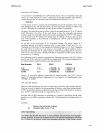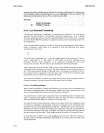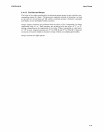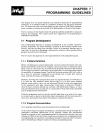
Input/Output
6-18
'E'
Descriptor Editing
An
I/O
list item matched with an
'Ew.d'
or
'Ew.dEe'
descriptor must be a real
variable. The exponent
'e'
has no effect on input
data.
On
output,
the
format
of
the
output
field for a scale factor (section 6.4.3.1.2)
of
zero is:
[±]
[0].x1
x2···
x
d
ex
P
where
± signifies a plus
or
minus
are the
'd'
most significant digits
of
the
data's
value
after
rounding
exp
is
a decimal exponent having one
of
the following forms
('y'
is
a digit):
Edit Descriptor Absolute value of
'exp'
Form of
'exp'
lexpl:$
99
±
OY1
Y2
Ew.d
99<
lexpl:$
999
±
Y1
Y2 Y3
Ew.dEe
lexpl:$(10**e)-1
E ±
Y1
Y2··
·Ye
The sign in the exponent
is
always present.
If
the exponent
is
zero, it
is
prefixed by a
plus. The
'Ew.d'
descriptor should
not
be used if exp exceeds 999.
Decimal normalization
is
controlled by the scale factor
'k'
(section 6.4.3.1.2).
If
-d<k:$O,
the number
output
will have exactly
Iklleading
zeros and
'd
- Ikl'
significant digits following the decimal point.
If
0<
k<
d + 2, the
number
will have
exactly
k significant digits
to
the left
of
the decimal point
and
'd
- k +
1,
signifi-
cant digits
to
the right
of
the decimal point.
Other
values
of
k are not legal.
Examples:
READ (2,30)
RLNUMB
30
FORMAT
(E4.2)
WRITE (6,110) RLOUT
110
FORMAT
(E6.5E6)
Logical Editing
An
I/O
item matched with
an
'Lw'
descriptor must be
of
type logical.
The input field includes
an
optional period followed by a
'T'
(for
TRUE)
or
'F'
(for
FALSE). These characters may be followed by additional characters.
For
example,
the logical
constants'
.TRUE.'
and'
.FALSE.'
are acceptable inputs.
The
output
field consists
of
the letters
'T'
or
'F,'
based on the
TRUE
or
FALSE
value
of
the internal
data.
Examples:
DIMENSION
TRUTH(4)
READ
(3,50) TRUTH(1), TRUTH(4)
50
FORMAT
(2L6)
WRITE (6,80) TRUTH(1)
80
FORMAT
(L
1)
FORTRAN-SO



